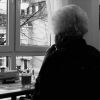
How to Help the Elderly Live Independently
With an ageing population there are more elderly people living independently than ever before, and as such, you must take steps to makes sure that your elderly loved one remains safe and secure in their own home. As you get older, your mobility, flexibility and eyesight diminish, and you are at increased risk of trips, falls, burns and poisoning.
Here’s a guide to keeping your elderly family, friends and neighbours safe and live independently.
Protect from strangers
It is well documented throughout the media how elderly people are preyed upon by criminals. It is heart-breaking when people are robbed of their life savings by a chancer who has knocked on a random door looking for a vulnerable victim. There are stickers that can be displayed that say no cold calling, but it has been argued that these simply act as a signpost to the criminal that there is potentially vulnerable residing in the property.
The best course of action is to educate the elderly person about how to deal with unknown door callers:
• Never let a stranger into the home.
• Don’t agree to any contracts or sales without a friend or family member being present.
• Ask for written details of the deal so that they can be discussed and reviewed in their own time with a friend or family member – genuine callers will be happy to do this.
• Keep back doors and windows locked – distraction crimes are prevalent.
Emergency numbers
If an emergency arises, the elderly person will need to contact help. Make sure that emergency numbers are clearly displayed near the telephone so that they can be accessed easily. Emergency numbers include:
• Family or friends.
• Doctors.
• Local police.
If your loved one has mobility issues that may prevent them from being able to get to the telephone, you can organise the best pendant alarm for elderly through www.helpline.co.uk. By doing so, emergency help can be contacted without the need for a phone call – it will give you and them the peace of mind that help will be on its way at the touch of a button.
Accident prevention
When people age their mobility, flexibility and eye-sight diminishes which makes the risk of accidents increase. You need to evaluate where the risks lie. Key areas to look out for are tripping hazards in hallways, stairs and walkways – rugs, cables and footstools need to be made safe. This can mean removing altogether or making safe with tape. Assess the stairs and bathrooms to see if they would benefit from grab rails being installed. We would also recommend getting a stair lift installed by thyssenkrupp.
Frequently check that fire, carbon monoxide and smoke alarms are fully functional and that the batteries don’t need replacing.
Keeping the elderly safe and independent is important for their health and sense of wellbeing. By identifying where hazards and risks lie, you can reduce the chances that something untoward will happen to them. Regularly check in on them to assess how they are coping and so that you can nip any issues in the bud before they escalate into a greater problem.

















